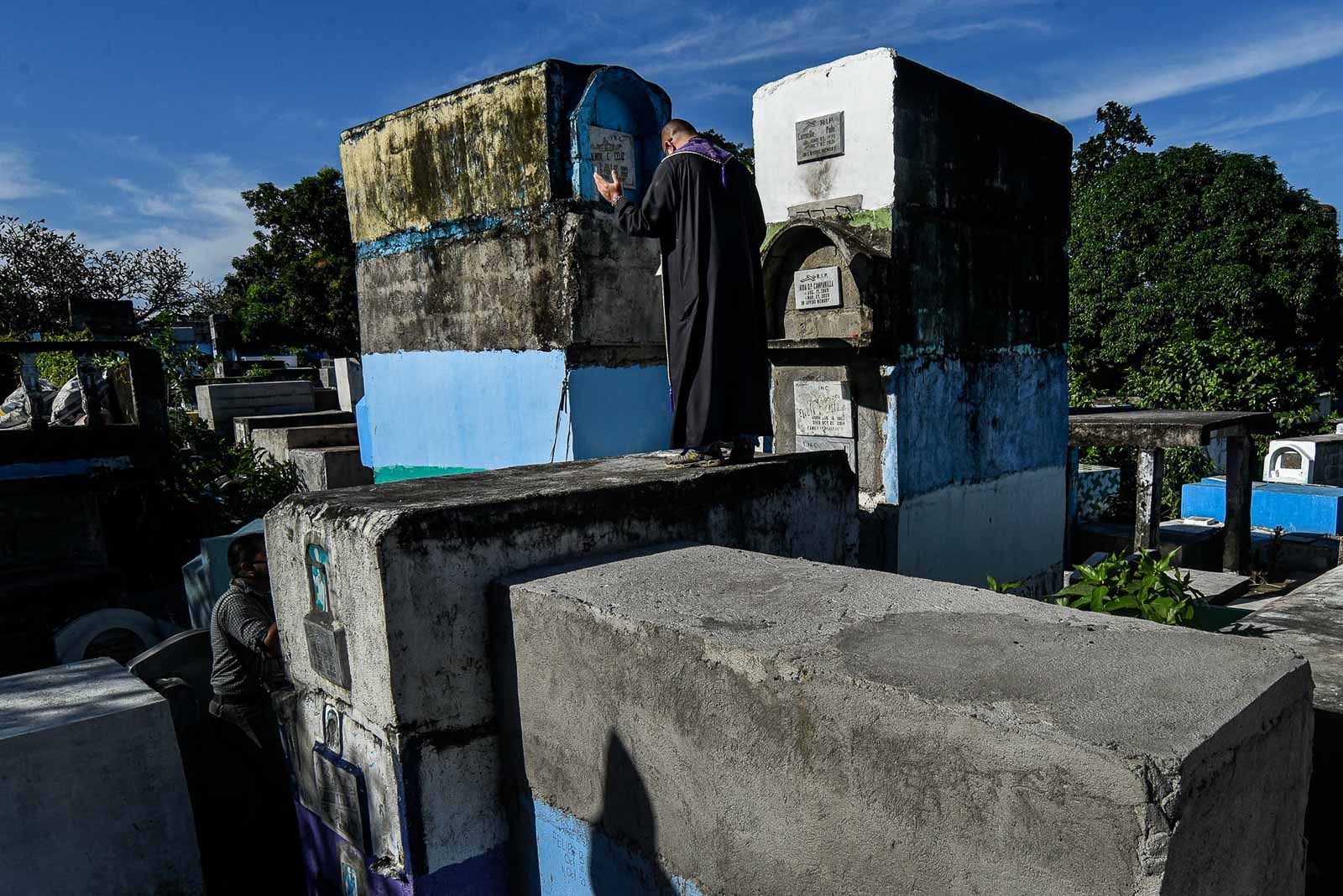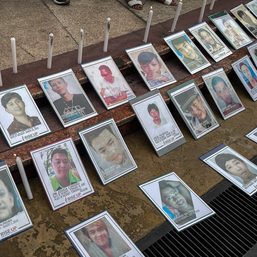SUMMARY
This is AI generated summarization, which may have errors. For context, always refer to the full article.

As President Rodrigo prepares to retire from office, families left behind by those who died in police operations and vigilante attacks in the name of his drug war are stuck in a nightmare.
In the Philippines, public cemetery leases only last five years. If a family failed to pay, it meant eviction for their dead – busting their graves open and throwing them into a mass grave.
The families could not afford the extension – their breadwinners were the victims. With the help of activist priest Flavie Villanueva, some 44 families have opted for exhumation, cremating the bones and keeping their loved ones’ ashes at home.
For many of these families, it was a bitter homecoming. Five years on, justice continued to be out of reach, investigations languishing.
Rappler attended these exhumations and spoke with at least four families.

They want the killers of their loved ones jailed, but they have not so much as faced them in a court trial.
Those who filed complaints faced an uphill battle against the government, and those who didn’t file wished they had but did not know what to do.
There is the story of Mariza Hamoy, who testified with two other women over the police operation that killed her son. Midway in their battle against the police, her co-complainants retracted. She suspected the police had a hand in the women folding.
There is the story of Angel Santos*, who was too young at 11 to understand why her parents were killed in front of her. She saw six men shoot her parents, but the police chased down and killed only one and called their case solved. The other men still roamed free.
There is the story of Joy Anne*, whose son was shot dead by policemen, but when she came to retrieve his body at the funeral parlor, she was forced to say he died of sepsis. If she wanted them to declare her son was killed by bullets from the cops, she had to pay P15,000. Being too poor, she accepted sepsis as the cause of death of her son.
The stories show a government and justice system failing to give the country’s most vulnerable a reprieve and a chance at justice.
The family’s losses are among at least 7,000 drug suspects killed in police operations and among at least 30,000 killings that human rights groups estimate were inspired by Duterte’s drug war as of 2019. The number has risen since then.
Read the stories on Rappler:
- Killed, buried, exhumed: Drug war victims still find no peace in Duterte’s Philippines
- Her son now ashes, mother vows never to surrender to Duterte
- She saw 6 men murder her parents. The cops killed 1 and declared the case solved.
- The police shoot him dead. The funeral parlor says he died of sepsis.
– Rappler.com
*Their names are changed to protect her identity.
Add a comment
How does this make you feel?



![[EDITORIAL] Sorry Arnie Teves, walang golf sa kulungan](https://www.rappler.com/tachyon/2024/03/animated-arnie-teves-arrest-carousel.jpg?resize=257%2C257&crop=310px%2C0px%2C720px%2C720px)






![[OPINION] Rodrigo Duterte and his ‘unconditional love’ for China](https://www.rappler.com/tachyon/2024/04/rodrigo-duterte-xi-jinping-august-2019.jpeg?resize=257%2C257&crop=91px%2C0px%2C900px%2C900px)



![[The Slingshot] Lito Patay’s 4 hours and 38 minutes of infamy](https://www.rappler.com/tachyon/2024/07/Lito-Patay-4-hours-infamy-July-19-2024.jpg?resize=257%2C257&crop=233px%2C0px%2C720px%2C720px)
There are no comments yet. Add your comment to start the conversation.